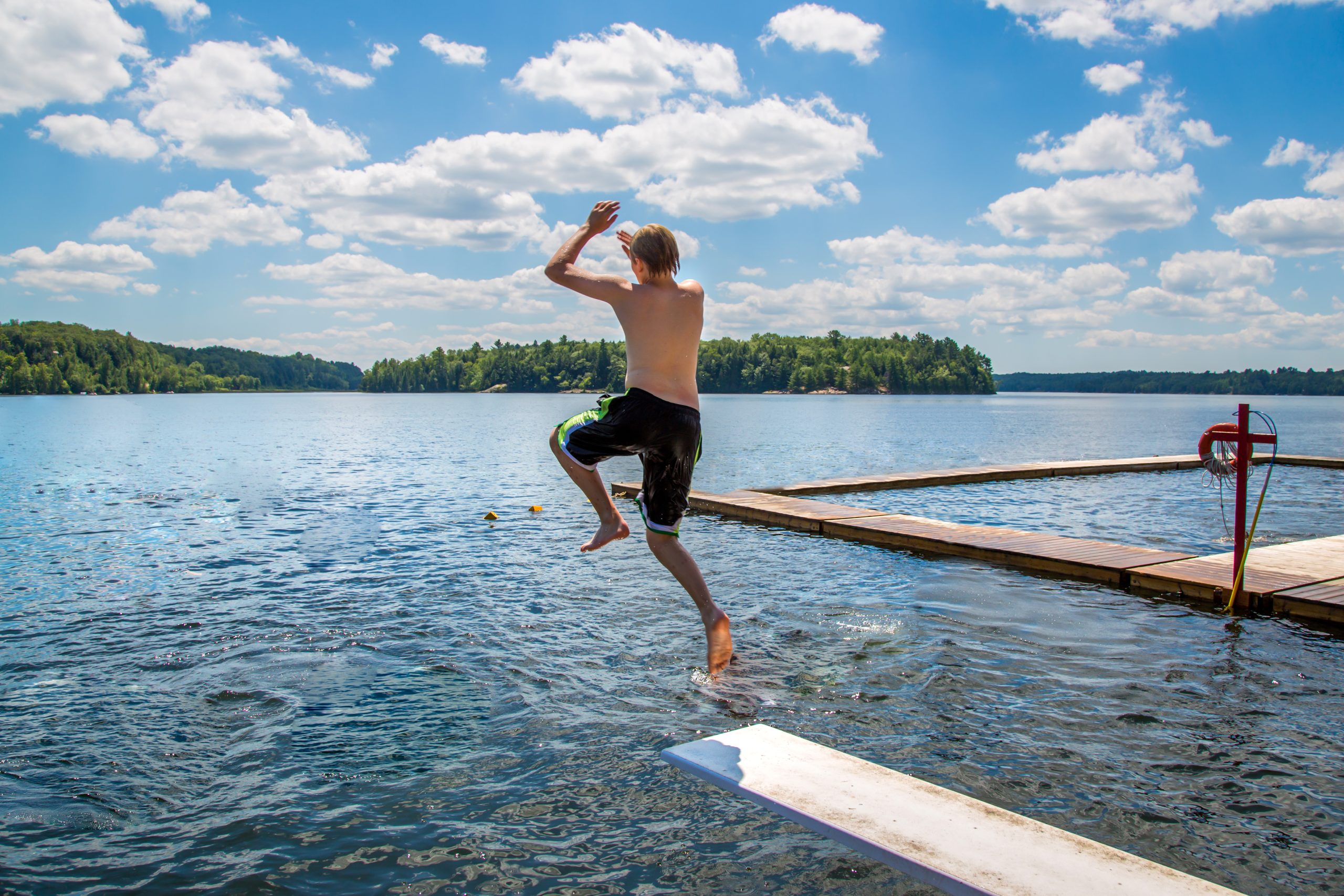Hennepin Healthcare trauma experts warn of diving dangers ahead of trauma season

Memorial Day weekend marks the beginning of summer – and trauma season – when many Minnesotans head out to lakes and pools to (finally) enjoy the warm weather. Experts warn about the risk of serious spinal cord injuries from diving accidents and want to get the word out on how to prevent these injuries from ever occurring.
“Because of the severity and life-altering consequences of spinal cord injuries, prevention is critical,” explains Hennepin Healthcare Injury Prevention Specialist Julie Philbrook, RN. “And so many diving injuries are entirely preventable.”
According to the American Association of Neurological Surgeons, an estimated 11,000 spinal cord injuries occur in the United States each year. Diving is the fourth leading cause of spinal cord injury among males, and the fifth among females. As many as 1,000 of these injuries result when persons – mostly males aged 15-25 years – dive into swimming pools or natural bodies of water.
“Know what you are diving into,” Philbrook reminds. “If you are at a lake, go in feet first the first time. At a pool, be aware of where the pool slopes to the shallow end, and in any situation, never swim impaired by alcohol or drugs.”
She also says that even if you may be familiar with a spot on a lake where you have dived before, changes may have taken place beneath the water to make it unsafe.
“Lake bottoms and debris can shift – and you may have grown, too.”
In August of 2020, Isak Hedeen from Wayzata was attending a graduation party for one of his best friends. It was just getting dark, and the host wanted people to get in the pool. Isak dove in, not realizing it was the shallow end.
“I remember hitting the bottom, but didn’t know what happened at first,” he said. “My sense of space and orientation was in complete disarray, and my head was spinning. I had no clue what was going on or how long I was under water. My life flashed before my eyes.”
Luckily, Isak floated to the surface face-up so he was able to breathe. Music was playing and there were a lot of people around the pool, so it was a few minutes before people realized what had happened.
“I saw my legs dangling and couldn’t feel them when my friend carried me out of the pool. It wasn’t until then that I realized my situation was worse than I thought.”
An ambulance arrived and brought him to HCMC, where he was in the ICU for two weeks and had two surgeries under the care of neurosurgeon Dr. Walter Galicich.
“Isak fractured his C-7 vertebrae in his neck, and unfortunately a severe spinal injury like this results in often irreversible damage,” Dr. Galicich explains. “This young man is very fortunate to be alive and has made incredible progress in his recovery. His journey is definitely inspiring, and he’s come a long way in spite of his challenges.”
Isak is now a student at the University of Minnesota studying product design. He wants to remind others of how quickly your life can change with a neck injury.
“It’s scary to think how fragile your neck is and what an impact it has on your life. I’ve met so many other people who got spinal cord injuries doing normal everyday activities, and they were all sudden, unexpected – and preventable accidents. When I used to think about these injuries, I never thought it would happen to me, I had an invincibility mindset (which most guys my age do). I hope that sharing my story can make a difference and show people that everyone is at risk and raising awareness is the best way to counter it.”
How to avoid a diving injury:
- The best way to enter the water is ALWAYS feet first.
- Never dive into the shallow end of a pool.
- Know that there are often hidden objects in lakes, rivers, etc. Always enter the water feet first.
- Avoid alcohol when you’re swimming.
- Realize that when you dive, your body is a torpedo cutting through the water and that water may not protect you from a severe impact.
- Just because you used to dive somewhere does not make it safe. You may have grown and underwater surfaces may have shifted.
- Some injuries are caused by hitting the side of a pool or swimming hole. Depth is not the only thing to be concerned about.
If you suspect a person has an injury to their neck or spine:
- Activate 911
- While still in the water, log roll the person so they are face up
- Support their head, neck or spine (nose in line with their belly button).
- If possible, wait for EMS and/or lifeguards to remove them from the water. They will use equipment to stabilize their spine, which can avoid further damage.
Additional resources: https://www.thinkfirst.org/sites/default/files/SCI%20Fast%20Facts%204-25-20_0.pdf

